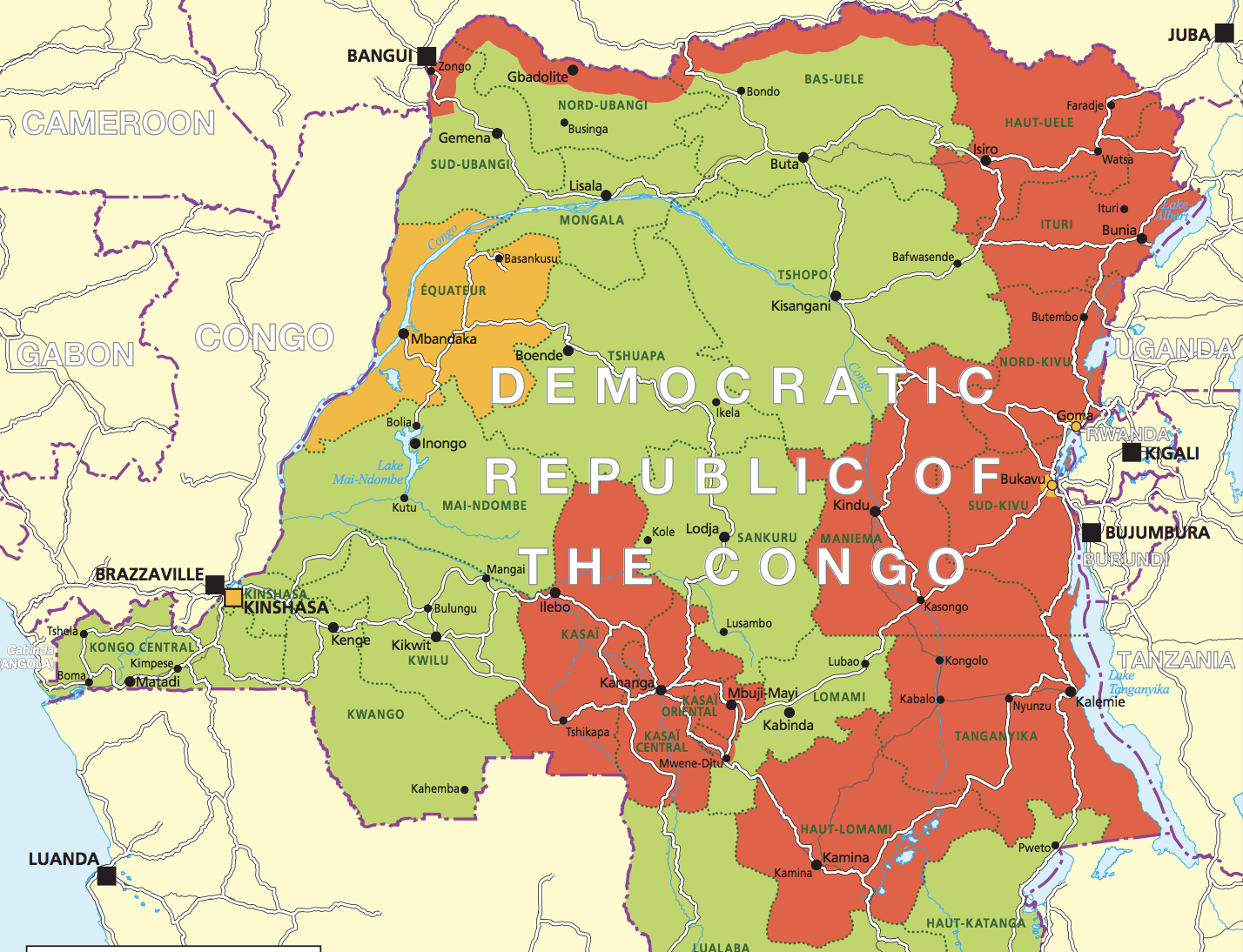Democratic Congo: travel firm questions Foreign Office advice
Kidnapping and Ebola should not put the DR Congo off-limits, says adventure travel expert

Your support helps us to tell the story
From reproductive rights to climate change to Big Tech, The Independent is on the ground when the story is developing. Whether it's investigating the financials of Elon Musk's pro-Trump PAC or producing our latest documentary, 'The A Word', which shines a light on the American women fighting for reproductive rights, we know how important it is to parse out the facts from the messaging.
At such a critical moment in US history, we need reporters on the ground. Your donation allows us to keep sending journalists to speak to both sides of the story.
The Independent is trusted by Americans across the entire political spectrum. And unlike many other quality news outlets, we choose not to lock Americans out of our reporting and analysis with paywalls. We believe quality journalism should be available to everyone, paid for by those who can afford it.
Your support makes all the difference.Two months after two tourists from London were abducted in the Democratic Republic of the Congo (DRC), a top adventure travel operator has said the Foreign Office is being unnecessarily cautious.
The latest official advice places large parts of the country off-limits, partly because of the fear of kidnappings and killings, but also because of an outbreak of Ebola virus.
Bethan Davies and Robert Jesty were released unharmed on 13 May, after an armed ambush in Virunga National Park. Their ranger, Rachel Baraka, died – as had 11 of her colleagues in the past year.
In the same week, the World Health Organization announced another outbreak of Ebola virus in the DRC.
But Jonny Bealby, founder of adventure travel company Wild Frontiers, rejects the advice, saying: “While most of eastern Congo does remain extremely volatile, the area in and around Bukavu is more stable – a point noted by the FCO.
“As home to a number of aid agencies, many of whom have European expatriate staff living in town, security is generally very good making Bukavu an excellent base for seeing the gorillas in Kahuzi Biega National Park, situated just outside of town’’
Congo is attractive because of its prominence as a primate tourist spot. Around half the world’s mountain gorillas are found in Congo, and the fees levied are far lower than in neighbouring Uganda and Rwanda.

Mr Bealby also points out that the now contained Ebola episode is 600 miles away from the national park he operates in.
“Even had the outbreak not been controlled, I’d have had no qualms in continuing to take people into the Congo,” he said.
The adventurer plans to lead the next Wild Frontiers Trip to DRC on 29 September 2018. Starting in Rwanda, the trip includes seeing chimpanzees in Nyungwe National Park, and then the DRC to see the gorillas in Kahuzi Biega National Park.
The Foreign Office has a number of nationwide warnings, saying: “The political and security situation remains uncertain following the national electoral commission announcement that elections will now take place in December 2018. There have been continued calls for general strikes (‘ville morte’), civil disobedience and public protests.
“In the event of serious unrest, commercial flights may be suspended, roads blocked and borders closed, making it difficult to leave the country. Internet connections and mobile phone networks may have reduced services or be cut off. Schools may be closed.
“Previous periods of unrest have seen an increased military and police presence in Kinshasa and other major cities, with stop-and-search checkpoints appearing in some areas, especially after dark.
“There are limits to the assistance the FCO can provide in a crisis, depending on the security and transport situation. You shouldn’t assume that the FCO will be able to provide assistance to leave the country in the event of serious unrest.”
Tourists who venture to locations on the Foreign Office no-go list risk invalidating their travel insurance.
Join our commenting forum
Join thought-provoking conversations, follow other Independent readers and see their replies
Comments